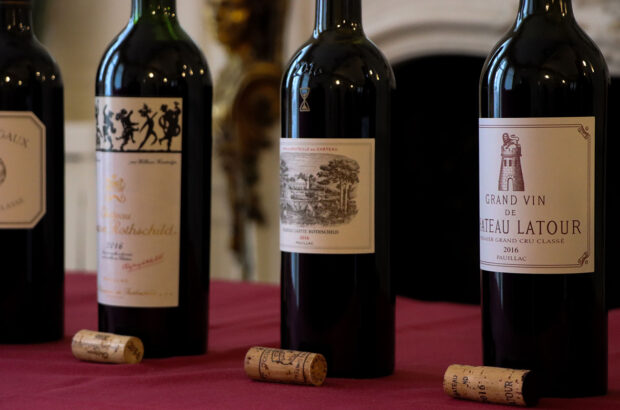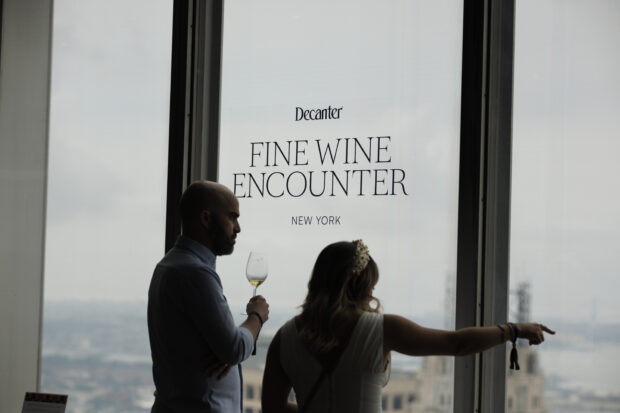Restaurants, in all their totality, are a form of improbable magic. In the best of cases, they’re the antidote to real life: dimly lit rooms buoyed by the current of disparate conversations, removed from the noise of the outside world, where sensory pleasure is delivered on silver platters, glasses are never emptied, and someone else handles washing the dishes.
Needless to say, the escapist grandeur of that dining experience is the sum of many parts. Yes, at the forefront, there’s the food – but there’s also the decor, the lighting, the music, the staff, the pacing, the glassware, and of course, the wine programme.
So why, then, does the latter feel so curiously absent from restaurant reviews?
The quintessential ‘restaurant review’ carries a great deal of power. Amidst our current cast of media-fluent, keyed-in consumers, it dictates a sizeable number of dining decisions – and as such, in an extraordinarily competitive (and oversaturated) restaurant scene, reviews can indeed make or break a venue.
That said, for all the immense influence these critics wield, they seem curiously allergic to the matter of wine.
In the recent raving review of Smithereens in The New York Times, the unique (off-dry-Riesling-forward) wine programme was entirely absent save for one line – and in a similarly timed review of Le Veau D’Or, the wine director’s name was misprinted (a local legend for his curatorial acumen).
While reviewing Manuela, a LA Weekly critic mentions ordering wine, but doesn’t specify what kind.
Drinks writer Alex Delany puts the problem simply: ‘Reviewing only select parts of a restaurant is a disservice to the reader and the diner. It would be like reviewing ¾ of a movie.’
‘Excellent wine programmes are not transferable’
Listen, I’m well aware that not all diners drink – but not all diners eat red meat either, and you’d be hard pressed to find a critic who won’t order the steak. And of course, wine is not made in-house like perhaps the bread service (you can purchase the very same bottle at a variety of restaurants) – but the art of the wine list is not craftsmanship, it’s curation.
And a well-wrought wine list is no small feat. It requires cross-regional and cross-vintage knowledge, as well as consistent updating. It requires breadth and versatility to suit a number of different palates. It requires foresight – an understanding of what to cellar, what to open, what to print on the list, what to pour by the glass. It requires an eye for bottles that offer value… without egregious price tags. And most of all, it requires a keen attunement to pairings.
Excellent wine programmes are not transferable – they’re entirely tailored to the food (and the rooms) they serve.
‘Beverage programmes are often there to make food taste better… sometimes without people even realising it,’ says Yana Volfson, who’s created award-winning wine programmes across Enrique Olvera’s restaurants in NYC and Los Angeles (Cosme, Atla, Damian).
‘We’re like a secret weapon: we come in, slide a wine glass in front of you and splash you with something that makes you smile – and the next thing you know, your palate is layered and blanketed with another nuance of flavour meant to contrast or align with a bite you’ve just had, or one you’re about to have.’
Volfson is right: While beverage programmes have plenty of standalone items to offer, in the grand scheme of a restaurant ecosystem, they’re particularly impressive when they’re so well incorporated, they simply exist to elevate everything else you’re consuming (whether or not you notice). They’re supporting actors, humbly forfeiting the spotlight while bolstering the star of the show (the food).
An ‘endlessly intimidating’ industry
Of course, it’s worth mentioning that I am a wine journalist by trade. Much to the (rightful) chagrin of my dining companions, I can spend far more time than feels appropriate poring over a wine list or enquiring after the sommelier’s points of interest. This is not the case for all diners.
‘I actually don’t feel like I need to know anything about a wine list ahead of time. I’ll ask someone else to choose for me based on what I’m ordering, either way,’ a friend told me when I asked whether or not she, too, felt the lack of beverage focus in restaurant reviews.
‘I don’t need to know anything crazy in depth,’ another friend reported. ‘But I do wanna know if I should be ordering wine instead of cocktails, or if the somm is cool and interesting, or if there’s some scheme or process behind the list. I find it a little strange that somms and beverage directors are never interviewed in any of the reviews the way chefs are.’
Amidst a handful of individuals polled, the reviews were mixed – which is to say, plenty of folks did not feel slighted by a lack of beverage discourse.
Per Eric Asimov, the wine critic at The New York Times, the same general poll holds true: ‘How a critic treats a wine list depends both on the restaurant and the format of the publication… when wine is crucial to the character of a restaurant, I would like to see a few sentences in the text of the review. For a general interest audience, I don’t think you need more than that.’
And according to Volfson, beverage is not always absent – she’s been properly commended for her beverage programmes in reviews more than once in the past, noting that former critics like Sam Sifton and Frank Bruni often paid close attention to what was available to drink.
As Asimov points out, there are restaurants for which the wine or the beverage programme is indeed a far smaller consideration than the food. Their lists are afterthoughts in the grand scheme of the dining experience in question, and thus it goes without saying that their corresponding chefly pursuits deserve greater review real estate.
Then again, the opposite case is just as likely. ‘When we opened Torrisi, it received a glowing three-star review from Pete Wells,’ says Bradley Nugent, who helms wine programmes across all Major Food Group properties. ‘The amount of time and energy I put into that wine programme and our bar manager puts into that cocktail programme was insane… and it was completely glazed over.’
As he explains it, Rich Torrisi, the man responsible for the venue’s food, is enormously talented – and he deserved every bit of the praise that appeared in The New York Times. But why not make space for beverage in addition?
‘In today’s age, it feels like skilled beverage experts are few and far between. Most places don’t even have somms anymore,’ he continues. ‘But if you’re a critic and you sit down in a restaurant that’s taken the time, energy and capital to hire a somm or beverage director, shouldn’t you notice that? Shouldn’t that experience factor into your review?’
It’s also worth noting that wine is plenty gatekept.
It’s an industry that’s endlessly intimidating to enter. Rife with niche scientific knowledge, difficult pronunciations, and a rolodex of grape varieties, regions, and producers that ought to be kept in mind, it can feel utterly impenetrable.
In fact, most committed wine professionals won’t even achieve mastery, so how can we expect our restaurant critics to do so as well?
‘It takes a lot of experience to be able to read a wine list and immediately identify what makes it artful or intentional,’ Matt Ross, a wine rep for Jenny & François Selections, told me. ‘And few writers and critics are expert enough to risk having a strong take.’
It’s a hard line to walk and even among snubbed beverage directors, no one is suggesting that culinary programs get less airtime – or that they’re not deserving of all the superlative praise they receive.
It’s just that, somewhere in there, especially when the restaurant in question has funnelled determined care into its beverage programme, a little praise (or even critique!) is welcome. Sure, that might mean taking risks or admitting ignorance. It might mean seeking out food critics with intentional wine backgrounds. It might mean sending writers with wine expertise to draft distinct sections of a restaurant’s review alongside a food critic.
At bottom, reviewers are not everyday diners. They’re pseudo-celebrities with power… and I, for one, don’t find it egregious to posit that they ought to know better than the rest of us when it comes to wine and food.
We’re too late in the game to call a beverage director an ‘unsung hero’ in a formal review. It’s about time someone started singing.







